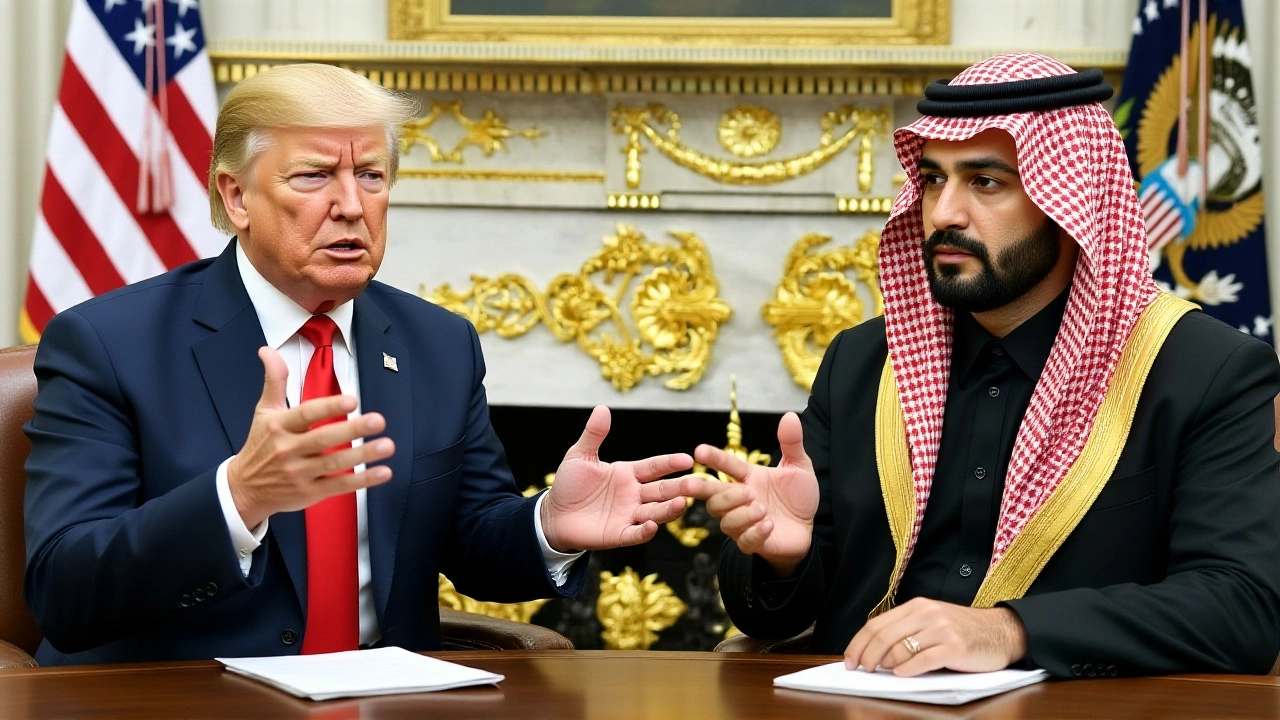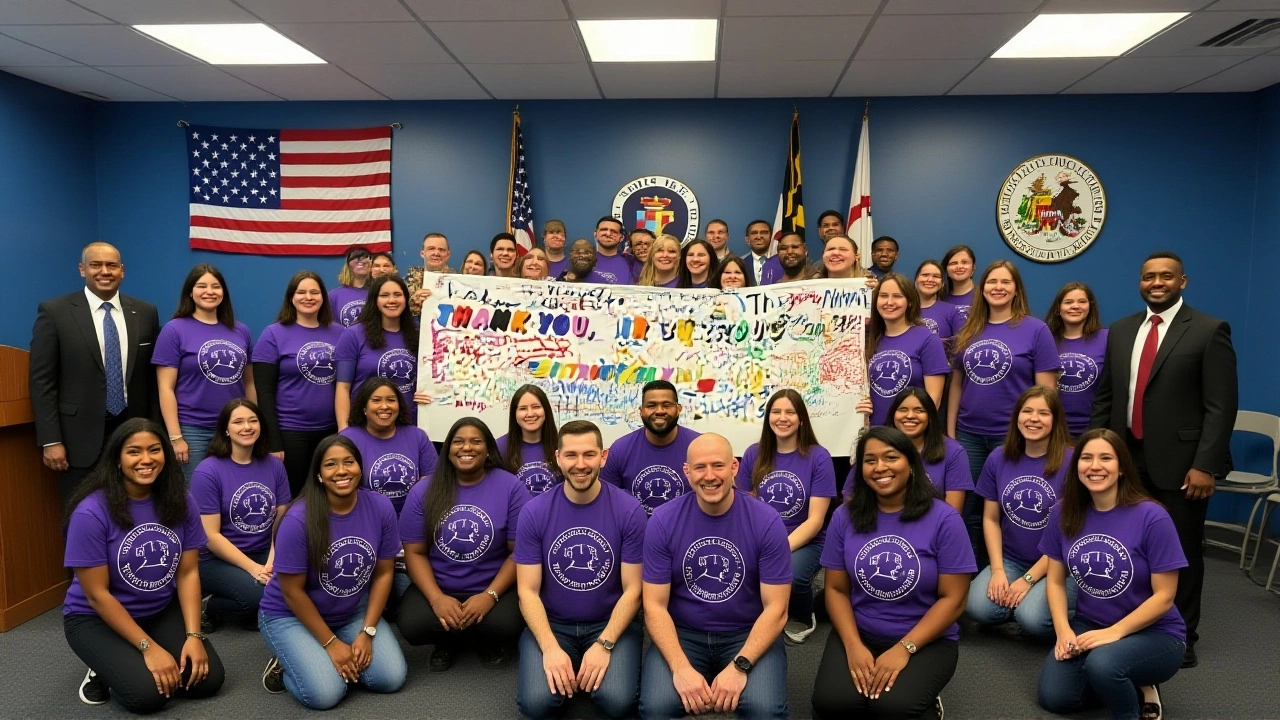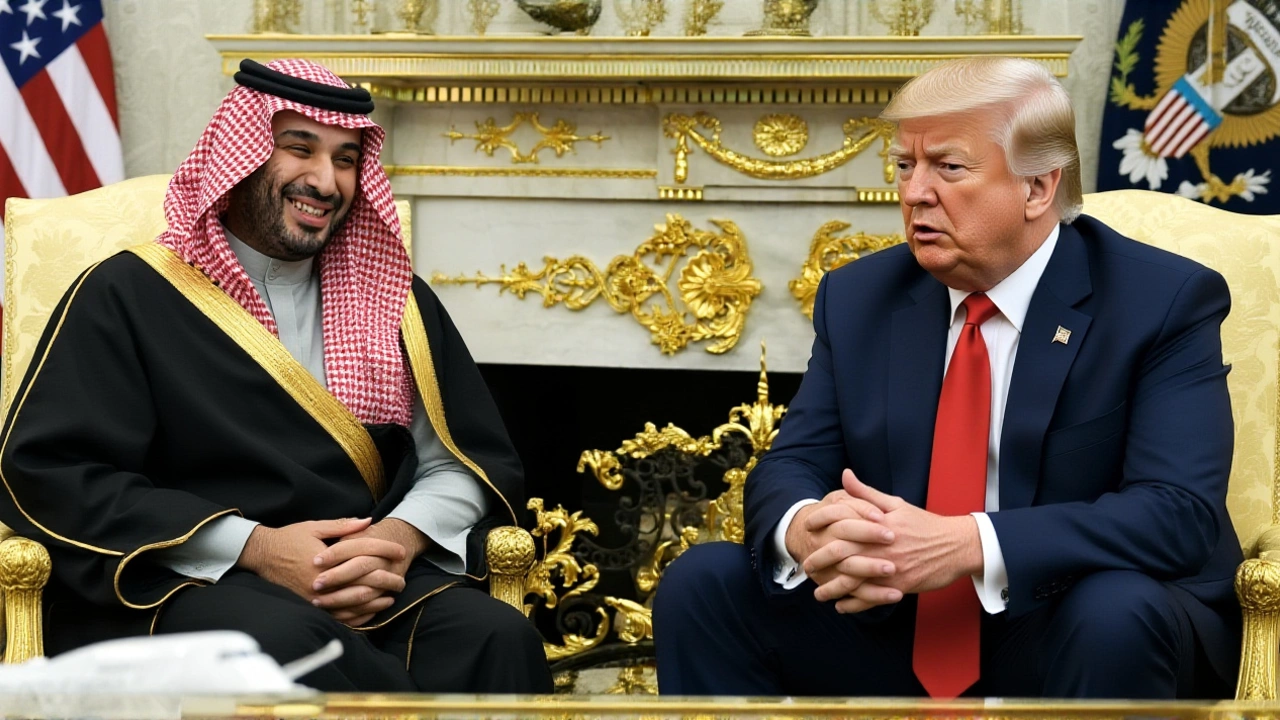President Trump hosted Saudi Crown Prince Mohammed bin Salman at the White House on November 18, 2025, amid outrage over Saudi executions and Trump Organization deals in Riyadh and Jeddah, sparking renewed debate over human rights and political corruption.

- Created by: Gareth Rubens
- Completed on: 20 Nov 2025
- Categories: World
On November 18, 2025, Donald John Trump welcomed Mohammed bin Salman bin Abdulaziz Al Saud, Crown Prince and Prime Minister of the Kingdom of Saudi Arabia, to the White House for a formal black-tie dinner and high-stakes bilateral talks — a visit shadowed by international condemnation and deepening questions about the entanglement of U.S. politics and Saudi wealth.
A Dinner of Power and Paradox
The evening began with a lavish reception in the East Room, where billionaires, Republican power brokers, and corporate titans mingled under crystal chandeliers. The First Lady Melania Knavs Trump stood beside her husband as the Crown Prince arrived, flanked by Saudi security and diplomats. But beneath the elegance lay a stark contradiction: while guests toasted to "strategic partnership," human rights groups were tallying the cost. In the year before the visit, Saudi Arabia carried out 345 executions — a record high, according to the World Socialist Web Site. That number, more than double the previous year’s total, wasn’t mentioned in the White House press release.Trump’s Defense, and the Silence on Khashoggi
When ABC News reporter Mary Bruce pressed President Trump on whether he’d seen "incriminating evidence" in the Epstein files — and whether he stood by the Crown Prince despite the 2018 murder of Washington Post columnist Jamal Khashoggi — Trump "erupted in defense," as reported by the World Socialist Web Site. "I’m very proud of the job he’s done," Trump declared. "What he’s done is incredible in terms of human rights and everything else." The remark stunned diplomats and activists alike. Khashoggi’s killing, carried out by Saudi agents inside the kingdom’s Istanbul consulate, had been confirmed by U.S. intelligence as ordered at the highest levels of the Saudi government. Yet Trump dismissed it as "old news," adding, "We’re building something big here." The same day, Trump Jr. was photographed signing agreements in the West Wing to construct Trump-branded towers in Jeddah and Riyadh. The World Socialist Web Site labeled it "the largest business venture by the Trump Organization in the Saudi kingdom." The deal, reportedly worth over $1.2 billion, was finalized just hours after the Crown Prince’s arrival — raising eyebrows about timing and influence.
The Kushner Shadow and the Billion Question
Curiously, Jared Kushner, Trump’s son-in-law and former senior advisor, did not attend the dinner. That’s notable because, as revealed in 2020, Kushner’s private investment firm received $2 billion from a Saudi sovereign fund managed by the Crown Prince. Kushner has repeatedly claimed he severed all ties to the Trump Organization during his White House tenure — but the financial trail remains murky. Meanwhile, President Trump, now back in the private sector but still the legal owner of the Trump Organization, insisted he had "no involvement" in the latest deals. "I’m not running the company anymore," he told reporters on the South Lawn. But when pressed on whether his sons’ business moves could affect foreign policy, he bristled: "They’re adults. I’m president of the United States. That’s my job." The disconnect is telling. The Crown Prince’s visit wasn’t just diplomacy — it was commerce dressed in state protocol.What Was Actually Discussed?
According to the White House’s official video release, titled "President Trump and the First Lady Greet the Crown Prince of Saudi Arabia," the talks covered defense cooperation, AI development, nuclear energy cooperation, and the potential normalization of Saudi-Israeli relations. The Defense Now report, published just minutes after the farewell ceremony, confirmed these were "issues of mutual interest" — but offered no detail on outcomes. What’s clear: Saudi Arabia, desperate to diversify beyond oil, is betting heavily on U.S. tech and infrastructure. The U.S., hungry for stable oil supplies and regional allies, is willing to overlook repression. The Crown Prince, under pressure from Western investors and domestic unrest, needs legitimacy. Trump, facing looming legal battles and a potential 2028 run, needs cash.
The Bigger Picture: A Pattern, Not an Anomaly
This wasn’t the first time a U.S. president welcomed a controversial autocrat. Reagan met Pinochet. Bush Sr. stayed silent on Saddam’s gassing of Kurds. But what’s different now is the blurring of state and personal enterprise. The Trump Organization’s expansion into Saudi Arabia isn’t incidental — it’s systemic. And it’s not just about towers. It’s about access, influence, and the quiet sale of American moral authority. The Crown Prince’s plane lifted off from the South Lawn at 8:17 p.m. EST on November 18, 2025. The White House issued a statement praising "progress." The World Socialist Web Site called it "a meeting of two billionaire rulers perched atop political powder kegs." Here’s the thing: neither side is pretending this is about democracy. It’s about power. And money.Frequently Asked Questions
How does the Trump Organization’s Saudi deal affect U.S. foreign policy credibility?
The Trump Organization’s $1.2 billion deal to build luxury towers in Jeddah and Riyadh undermines U.S. claims of promoting human rights. When a president’s family profits directly from a regime accused of executing 345 people in one year, diplomatic criticism rings hollow. Experts say it erodes trust among allies and fuels anti-American sentiment in the Middle East.
Why didn’t Jared Kushner attend the White House dinner?
Kushner’s absence is widely interpreted as an attempt to distance himself from the optics of the visit, despite having received $2 billion from a Saudi sovereign fund during his time in the White House. His firm, Kushner Companies, still holds undisclosed assets tied to Middle Eastern investors, raising questions about conflicts of interest even after leaving government.
What’s the significance of the 345 executions in Saudi Arabia?
The 345 executions in 2024 — the highest annual total in Saudi history — reflect a brutal crackdown on dissent, including women’s rights activists, clerics, and journalists. The U.N. Human Rights Council condemned the spike. Yet the U.S. continues arms sales to Saudi Arabia, totaling $11.4 billion since 2020. The numbers aren’t just statistics — they’re policy signals.
Could the Trump Organization’s Saudi deals violate the Emoluments Clause?
Legal scholars argue yes. The Constitution prohibits federal officeholders from accepting gifts or payments from foreign states. While Trump claimed to transfer control of the Trump Organization to his sons, he remains its legal owner. The Jeddah and Riyadh deals, signed during his presidency, constitute direct financial benefit from a foreign government — potentially violating the Emoluments Clause, though no court has ruled on this specific case.
What’s next for U.S.-Saudi relations after this visit?
The Trump administration is expected to fast-track a new arms deal worth up to $15 billion, including precision-guided munitions and surveillance tech. Talks on nuclear energy cooperation are also advancing, despite concerns over proliferation. Meanwhile, the Trump Organization plans to open a regional office in Riyadh by early 2026, signaling deeper commercial entanglement — and a new era of transactional diplomacy.
How has the public reacted to this visit?
Polls show 68% of Americans disapprove of Trump’s defense of the Saudi regime, according to a Reuters/Ipsos survey released November 20, 2025. Protests erupted outside the White House and in major cities, with signs reading, "Blood Money Isn’t Diplomacy." On social media, #KhashoggiStillMatters trended globally for three days. The backlash is bipartisan — even some Republicans called the visit "embarrassing."